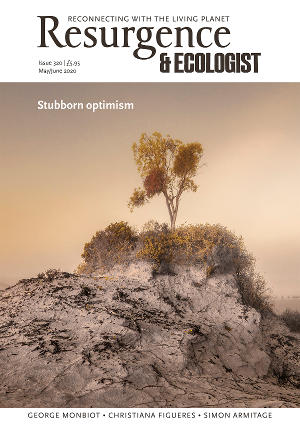If we have eyes to see, the multiple crises in the natural world mirror our overall relationship to Nature and its implications back to us, as indicators. In this book it is bees and the lessons from colony collapse and – as the author felicitously puts it – the concomitant compassion collapse disorder requiring what he calls “the choreography of care and a restoration of the imaginal (and therefore empathic) literacy”. The essential message of this eloquent book identifies our mindset as the root of the problems we are creating. How do we look at and understand the world? Using a famous series of lectures by Rudolf Steiner as a marker, Horst Kornberger traces this instrumental and exploitative attitude, so far as bees are concerned, back to a magnified anatomical illustration by Francesco Stelluti in 1630, where separated limbs are tellingly illustrated. This corresponds to the fashion for dissection and the predominance of what Kornberger calls “the microscopic mind one-sidedly focusing on details at the expense of the whole”.
When you put detached objectivity together with the profit motive of capitalism, you get exploitation and indeed violation of species. The author comments: “Today, we know more about bees than any generation before us, yet we understand less about them than ever. As our eyes have been opened to detail, our minds have been blinded to the whole.” As a result, we fail to grasp the implications of interfering with the social fabric represented by bee culture, using state-of-the-art inseminators including microscopes and computer screens to fertilise the anaesthetised queen. This very image encapsulates the unfeeling, manipulative and detached mind. The microscope needs to be complemented by the macroscope while recognising the danger that a paradigm shift might “change the products of the mind but not its way of production”. Hence Kornberger advocates “a thorough paradigm metamorphosis, a change that transforms the way we perceive, investigate, cognise, feel and act. Otherwise the same mindset simply continues under a different guise.” A chapter on Goethe explains how he brought together head and heart, self and world, observer and observed, subject and object, knowing and being, in a dynamic understanding of the unfolding and enfolding life process, crucially by using his imaginative and contemplative faculties as organs of perception. Imagination is closely related to empathy and therefore to care and compassion. Kornberger argues that “compassionate ecology is a powerful remedy for the scientific detachment at the core of the environmental crisis.”
He develops a number of other useful metaphors: a comparison between bee frames and mind frames, rectangular boxes and thinking inside the box. The emphasis of Darwinism needs to be reframed away from competition towards cooperation, synergy and symbiosis. He encourages us to “swarm our paradigms and restore the biodiversity of the global mind as a prerequisite to restoring the biodiversity of nature”, reminding us that swarming is a form of rejuvenation that we also need to apply to our education system. We do not often stop to reflect on the pervasiveness of mechanistic metaphors such as genetic engineering and how they influence the way we think. Machines cannot transform – only organisms can, and in the case of humans this requires imagination: “We do not lack creative solutions, only the mindset to put them in place. The real scarcity is the scarcity of imagination and the paucity of paradigms” that could restore “ecolibrium”, represented in the image of the global hive of the title.
This is a brilliant and penetrating study of the impact of our manipulative and emotionally impoverished western mindset – homo scientificus-economicus – and an urgent call to swarm our paradigms, pollinate the global mind and weave a new and compassionate ecosphere of meaning.







